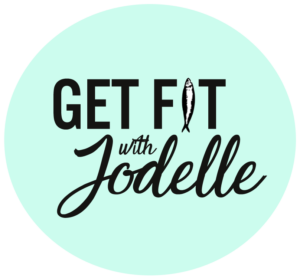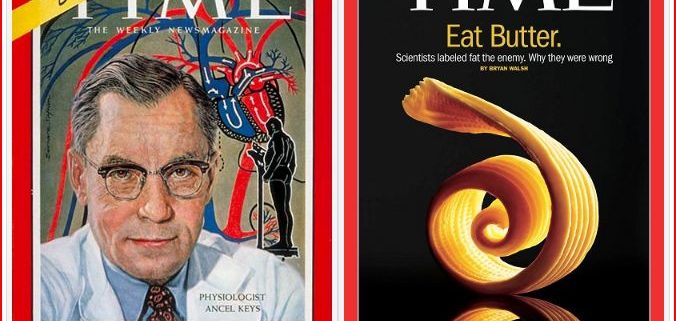The Book “The Big Fat Surprise” May Surprise you too!
I love audiobooks, and the convenience of listening instead of reading when life is busy. But this one? I should have bought the heavy-duty hardback.
Upon its release, I couldn’t wait to download this book and begin. I had heard about the research packed into it, and as a firm fan of fats, after a lifetime of low-fat eating, I wanted to know if the “Big Fat Surprise” was what I thought it would be. And I wasn’t disappointed. (Except with the fact that I purchased the audio version. I highly recommend getting this book as the “hold-in-you-hand-and-absorb-all-the-goodness” kind).
The Big Fat Surprise by Nina Teicholz was actually no surprise to me at all. For when you come a childhood riddled with fat-free cookies that tasted like a sugar-laden makeup compact, and fat-free ranch dressing which somehow congealed when it landed on your pallet, you can’t help but faint with delight when as an adult, you finally read the research on fat for yourself and discover (and taste) an egg yolk for the first time rather than just the whites. Even without research, if logically we would simply think about which part of the egg (the white or the yolk) the baby chick would derive it’s nourishment from, we can that the “yolk” is on us if we decide to forgo it.
The big takeaway within the monstrosity of research in this book? Saturated fat was not the villain that it has been deemed as, and lard, tallow, and butter that our grand-mothers and their grandmothers cooked with still was the best option for optimal health.
The deeming was done initially by a prominent biologist named Ancel Keys, who made it his career to study how dietary fat affected blood cholesterol. Keys founded the Seven Countries Study, in 1958, studying the dietary patterns of countries such as Greece, Italy, Spain, South Africa, Japan, and Finland. Yet, despite how pleased Keys was with the evidence, the evidence was meager, at best. Keys cited that the countries that tended to consume the most fat had the most heart disease. And he was quick to announce to the world his findings! Even ending up with his face on the cover of Time Magazine in 1961.
The real results? He failed to discuss the countries he left out, of which fat intake was low but heart disease high, like Chile. And how about the countries of which gobbled up enormous amounts fat but had low heart disease statistics, like Holland and Norway. In all reality, Ancel Keys cherry picked his data to support his theory. This study gained massive attention early on, influencing low fat dietary guidelines that our government ran with for decades and even today still somewhat support, thanks to the food science industry as well as food marketers chasing the All American dollar rather than looking out for the health of the population.
Then there was the Mediterranean study mentioned in the book, which promoted the use of olive oil as it’s key source. This diet too was found to be based on flawed evidence. And it even made me reconsider the way we are persuaded to believe today that olive oil is actually a fat we should use with a free-flowing stream. Even the current nutrition therapy training I am undergoing talks on the benefits of Olive oil. I have my doubts. Again, back to logic: if you had to make your own olive oil in your kitchen, versus your own butter, which would be easier for you to do. This would stand to reason that olive oil is still a very processed oil, and I appreciated how the book’s author noted that olive’s oil first intended purpose was to rub on the body, as opposed to being a dip for a crusty slice of bread. To date, I recommend using very little olive oil as part of a healthy diet, if at all. In fact, the only olive oil in my home is in my bathroom for slathering on after my shower.
After these studies led by Keys shook the American public to the core, changes were made in the recommendation of vegetables oils in place of saturated fats. Food companies were scrambling to find a suitable substitute for oils such as palm oil and tallow which were highly stable oils that held food-stuffs together and made frying a breeze. And the result was hydrogenated oils. Processed trans fats like margarine ruled the shelves at the grocery stores, and butter was put out to pasture, so to speak. That was until the Judd study, led by Walter Willet.
It’s like the part in the book where the bad guy finally gets shut down for good, and the world is saved. (Enter massive cheering and throwing hats upward). The Judd study was known as the most famous study for the food science industry shooting themselves in the foot. In a nutshell, the study compared four diets:
high in olive oil
high in trans fats (processed vegetables oils)
moderate in trans fats
saturated fats …
The study revealed that the diets containing processed trans fats led to a rise in LDL cholesterol, and lowered HDL (good) cholesterol. With the help of a passionate doctor and nutrition researcher, Walter Willet, this led to the push to have trans fats removed from the food supply, and science had finally won out. And for good reason too….
A nutrition fact I love comes from this book and states that processed vegetable oils (known as Omega 6 oils) compete for absorption with more essential Omega 3 oils like DHA. DHA is critical for every cell of the body, but most specifically the brain. Too many processed Omega 6 oils are researched to be pro-inflammatory, leading to a whole host of issues such as cardiovascular disease, high blood pressure and high cholesterol, and even diabetes. On the other hand, Omega 3 oils are responsible for fighting inflammation and are scientifically proven to lower the risk for such issues. So maintaining a good amount of Omega 3s intake as opposed to processed and refined oils is one of the wisest actions to take for your health.
And as parent always seeking after the best nutrition for my toddler, my favorite feature of this book was about a prominent lawyer named Steven Joseph. Joseph, a California lawyer with no interest in money but rather on principle, filed suit against Kraft Foods North America to remove trans fats from Oreo cookies. His principle? An injunction against the sale and marketing of Oreos to children in California – a fact that at the time was not widely known to the general public. I myself remember visiting his website that the book touched on back in 2003 when I first began studying nutrition after the media publicized it. Unfortunately while me and hundreds of others visited his site and cheered him on and left our regards for the good he was doing, he had to drop the suit, as the widespread public knowledge no longer allowed him to present his case to a judge. But his work wasn’t without warrant, for it lit a fire under Kraft Foods to remove the trans fats in the Oreo cookie and they did just that.
With a little logical thinking, one would certainly postalize that if you held butter in one hand and a cup of processed soybean oil in the other, the butter would definitely qualify as more nutrient-dense than the soybean oil that has been heated, treated, and let’s not forget genetically modified. But if you are looking for more “exhibit a” hard evidence, then pick up a hard-copy of The Big Fat Surprise and let it remind you of just how great it is to eat pastured animal proteins, cook your brussels with bacon grease, and scramble the whole egg and not just the whites.




Leave a Reply
Want to join the discussion?Feel free to contribute!